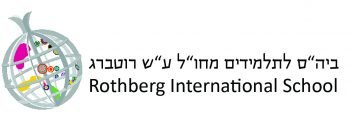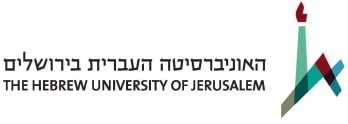
Highlights
- Gain insight into the contradictory role of religion as both an obstacle to peace and a resource for peacemaking.
- Examine how religion is a force for both war and peace in the continuing Israeli-Palestinian conflict, ISIS, the Syrian civil war, and the refugee crisis.
- Investigate religion and conflict as regional and global issues.
- Explore options and approaches for religious peacebuilding.
- Travel to key places and speak with regional players.
Religion is a potent force in world conflict – and also an inspiration for peace. With more than half of humanity adhering to the “Abrahamic Faiths,” the Middle East has been at the center of religion-related conflict for millennia. Based in Jerusalem – a city both cherished and disputed by Christianity, Islam, and Judaism – you’ll analyze the role of religion with regard to both peace and conflict. This course is offered as part of the nine-credit Coexistence in the Middle East program.
Together, we will engage in dialogue with religious leaders and interfaith activists, visit holy sites, and study theological perspectives. We’ll look at religion as a force for peace and/or conflict with an introduction to Judaism, Christianity, and Islam. Additionally, we’ll explore religious aspects of the Israeli-Palestinian conflict, including an introduction to the historical, cultural, and religious underpinnings of nationalism and conflicts over holy sites.
We’ll also discuss religion and conflict as a regional and global issue, including religious terrorism, (ISIS, radical Islam, and islamophobia), challenges to multiculturalism, and Shia and Sunni relations in the Middle East. Finally, we’ll develop an understanding of religious peacebuilding by looking at theory and case studies, examining religious initiatives in conflict resolution, and visiting grassroots interfaith and peacebuilding projects.
For more information, see the brochure or sign up for updates with the Coexistence program.
Course Components
- Site visits and field trips to significant locations such as:
- Holy places in Jerusalem
- Holocaust memorial museum
- Security fence
- Acre’s Al-Jazaar Mosque
- UN Headquarters in Jerusalem
- Guest lectures and face-to-face meetings with religious leaders, interfaith and NGO activists, pilgrims and believers at holy sites, and academic and professional figures
- Class readings and discussions
- Research methods (observation, interviews, etc.)
- Final term paper
Professionals who are not interested in the academic credit may opt out of submitting the final paper and receive an audit grade (Active Participation grade) but must still attend all classes and field trips, and complete any assignment throughout the course. This option is also possible for students who are not interested in academic credit.
Please note that academic field trips vary in length as well as levels of accessibility. For field trip-related questions and more information please do not hesitate to contact us.
You’ll be invited to participate in a wide array of trips, tours, and activities offered by the Office of Student Life. From a tour of the Old City to a trip to the Dead Sea to checking out the local festivals, you’ll build your own unique impressions and memories of Jerusalem and Israel. While residing in HebrewU dormitories with other international and Israeli students, you’ll have a chance to form new friendships and get involved in campus life. A team of multilingual Israeli students, called madrichim, is also there to help you adjust to your new surroundings and give you tips on things to do. Learn more about student life at HebrewU.
“The Coexistence trip exceeded all my expectations by far… Being based in Jerusalem offered a unique cultural, historical, and political experience. The field trips provided a dynamic way to come to grips with the conflict as well as a chance to see the many other amazing sights that Israel has to offer.”
Laura Bonney
B.A., History and Politics, Oxford University, UK
“The experiences I’ve had here cannot be simulated anywhere else and that’s what makes the experience so unique. I believe that this course is the only one of its kind in the world given the range of speakers and sights. Here, the whole of Israel becomes your classroom and the amount of things that one can learn is limitless.”
Valeria Ryrak
B.A., English Literature, University of Toronto, Ukraine
- Watch alumni talk about why they chose this program.
- Check out our photo gallery on Facebook.
- Watch a short video about the program.
Dates & deadlines TBD
Application fee: US $120
Tuition fee: TBD
Housing: TBD*
*Depending on availability
The Coexistence program is offered in collaboration with Israel Beyond the Headlines (IBH).
Tuition, for both Summer and Winter sessions, is to be paid in two separate payments to Rothberg International School and IBH.
Learn more about fees, cost of living, and paying for the program.
For more information on Israel Beyond the Headlines’ method and terms of payment, please see here. For Rothberg International School financial information, see here.
Scholarships
A limited number of scholarships based on demonstrated need or merit are available.
Learn also about financial aid offered by IBH.
This course is open to undergraduate and graduate students, as well as to mature learners with an academic background. You must be currently registered at or have been accepted to a recognized college or university or have successfully completed at least one year of study at an accredited institution of higher education. English-language fluency is also required.
Apply
We’re pleased you’re applying to join us in Jerusalem. You can choose to take this course in conjunction with either one or both of the other courses in the Coexistence in the Middle East program:
- Narratives & Realities: Inside the Israeli-Palestinian Conflict
- Israel & the Post-Arab Spring: An Interactive View of the New Middle East
Taken together, these courses offer a more complete and valuable experience. To apply to the program, please select any or all of the courses from the list of “Summer Courses” in the online application. See our application guidelines.
Please note:
- You may switch from a summer course to this program until up to two weeks before the summer course/ program begins.
- See here for more information about visas.
Look here for the 2024 Summer Courses Schedule:
Contact
We’re happy to answer any questions you might have – or to chat for a bit to help you choose the right course or program.
Email Us
Call us: +972 2 588 2602
Find More Summer Courses
Please note that HebrewU reserves the right to cancel courses for which there is insufficient registration.
Fast Facts
Course:
Religion in the Holy Land
Teaching Faculty:
Language of Instruction:
English
Credits/Hours:
Academic hours: 45
Credits: 3
Course Dates:
Dates TBD
Eligibility:
Undergraduate and graduate students; mature learners with an academic background
Application Deadline:
TBD
Costs:
TBD
Relevant Academic Fields:
Religious studies, sociology, international relations, conflict resolution

